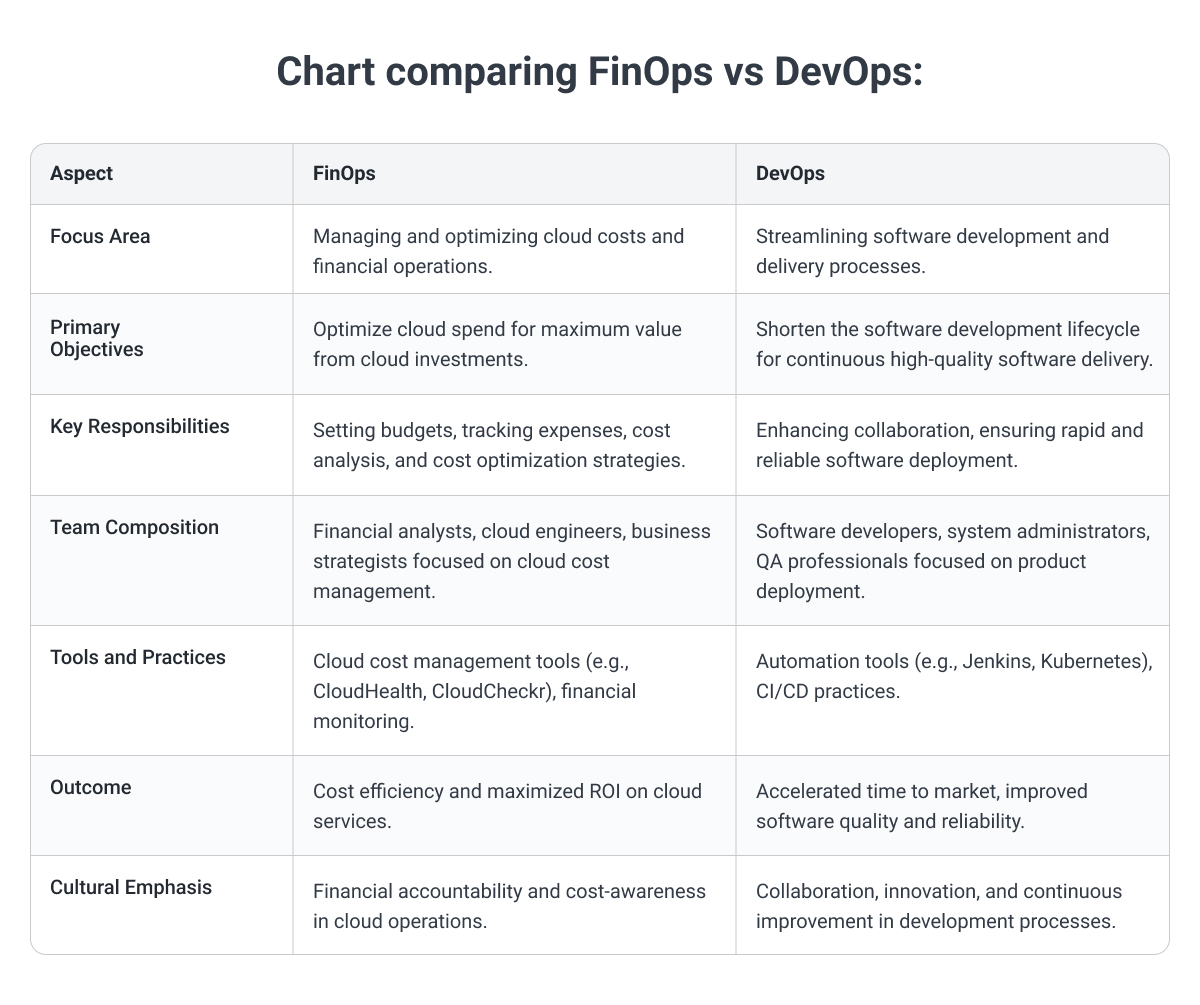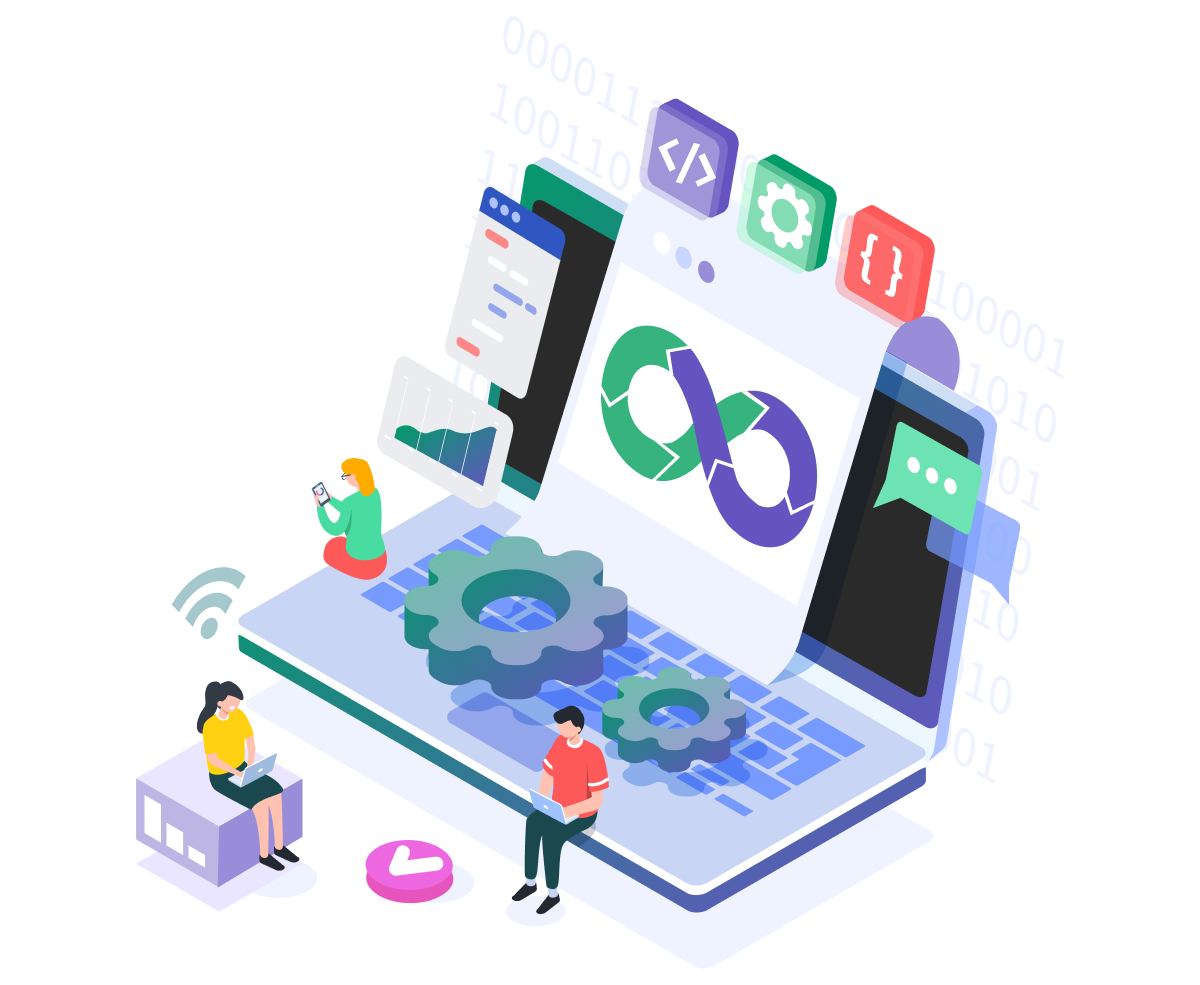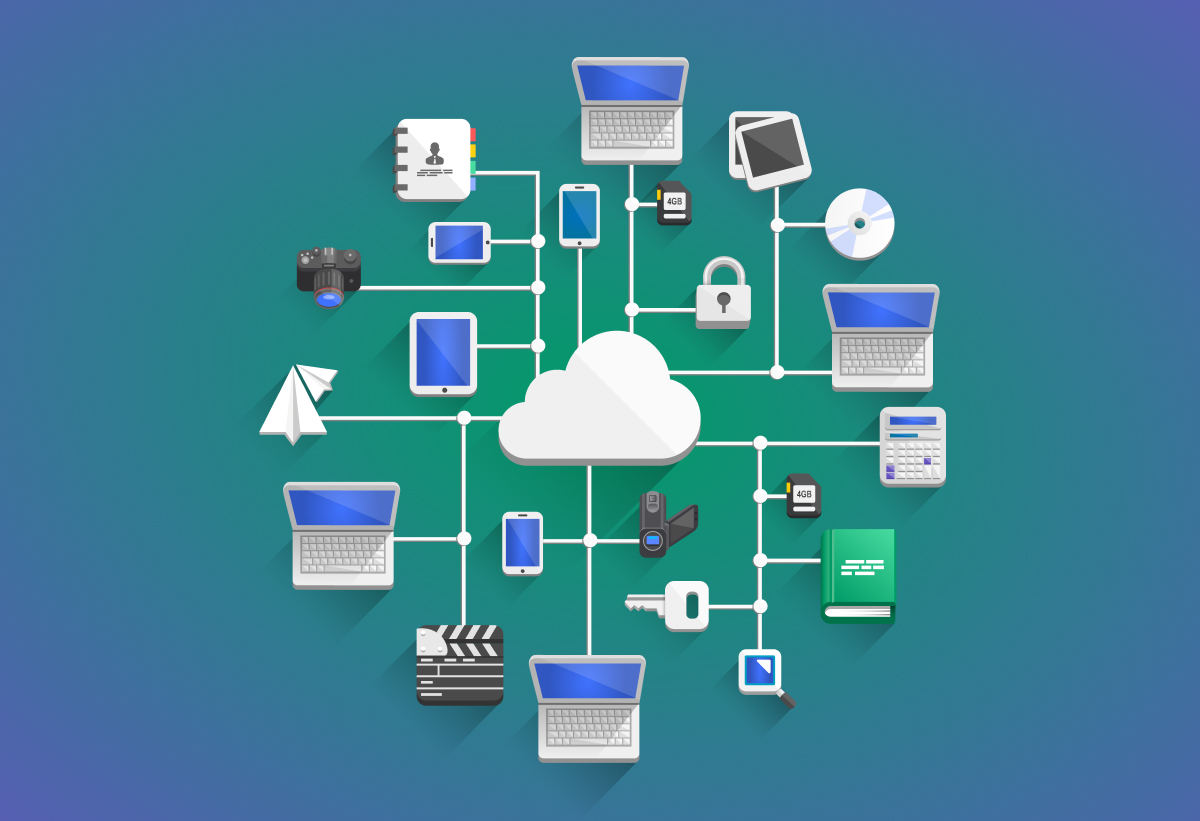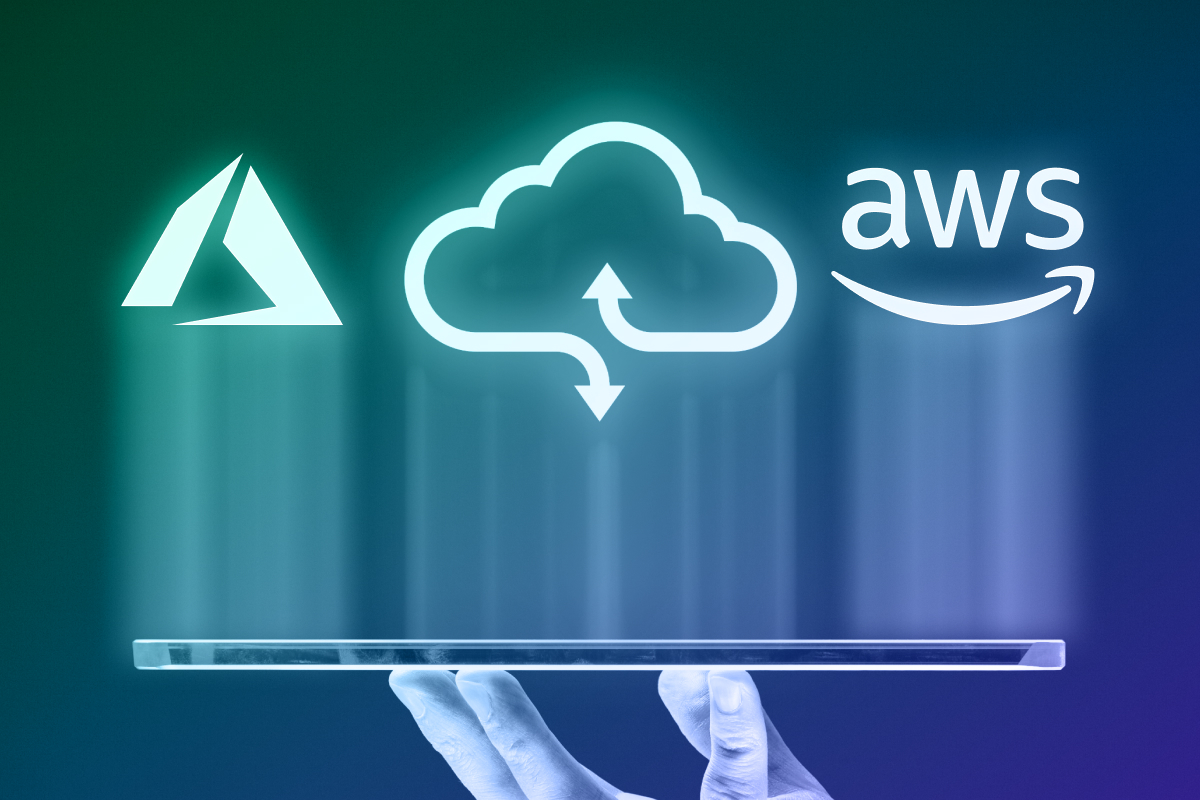Understanding the distinct roles and synergies between FinOps and DevOps is essential for organizations aiming to optimize both their operational efficiency and cloud expenditure. This guide explores the differences, the unique benefits of each, and how to determine which practices best fit your organizational needs.
What is FinOps and DevOps?
In the evolving landscape of IT operations and software development, two pivotal methodologies, FinOps and DevOps, have emerged as game-changers. While DevOps revolutionizes the software development lifecycle through integration and automation, FinOps brings financial accountability to the dynamic world of cloud computing.
Definition and Overview of FinOps
FinOps, short for Financial Operations, is a methodology focused on cloud financial management. It involves managing the costs associated with cloud operations efficiently. The primary objective of FinOps is to optimize cloud spend while ensuring that the organization gets the best value from its cloud investments.
Definition and Overview of DevOps
DevOps refers to a set of practices that combine software development (Dev) and IT operations (Ops). It aims to shorten the software development life cycle and provide continuous delivery of high-quality software.
The Main Differences between FinOps and DevOps
The main difference between FinOps and DevOps lies in their focus areas. While FinOps concentrates on financial management within cloud operations, DevOps is more about streamlining the software development and delivery processes. However, both play crucial roles in the modern IT landscape.

Key Principles of FinOps
Financial Management in Cloud Operations
Financial management in cloud operations involves tracking and optimizing cloud expenses. It requires regular monitoring of cloud usage patterns, identifying cost-saving opportunities, and implementing strategies to reduce unnecessary spending. By effectively managing cloud costs, organizations can maximize their return on investment in cloud services.
Cost Optimization Strategies
Cost optimization strategies in FinOps focus on maximizing cost efficiency without compromising performance. This includes rightsizing cloud resources, leveraging discounts and reservations, and adopting automation for cost control. By implementing these strategies, organizations can achieve significant cost savings while maintaining optimal cloud performance.
.jpg)
Benefits and Best Practices of Implementing FinOps
Optimizing Cloud Spend and Compute Resources
Implementing FinOps practices helps organizations optimize their cloud spend by identifying areas where costs can be reduced. By efficiently managing compute resources and leveraging cost-saving strategies, businesses can achieve significant savings on cloud expenses.
Importance of Budget Allocation and Cost Management
Budget allocation and cost management are essential components of FinOps. By setting realistic budgets and actively monitoring expenses, organizations can prevent overspending and allocate resources effectively. This approach ensures that financial resources are utilized efficiently and in alignment with business objectives.
How FinOps Enhances Cloud Cost Optimization
FinOps enhances cloud cost optimization by providing a framework for continuous improvement. By regularly evaluating and optimizing cloud spending, organizations can drive cost efficiencies and enhance overall operational performance. Through proactive cost management practices, FinOps enables businesses to achieve optimal utilization of cloud resources.

Comparison Between FinOps and DevOps Teams
Differences in Focus and Functionality
FinOps and DevOps teams differ in their primary focus and functionality. While FinOps concentrates on managing cloud costs and financial operations, DevOps is more oriented towards software development and delivery. Despite these differences, both teams can complement each other by aligning their goals and collaborating effectively.
Role of a FinOps Team
A FinOps team typically comprises financial experts, cloud engineers, and business analysts who collaborate to manage cloud costs effectively. The team is responsible for setting budgets, tracking expenses, conducting cost analysis, and implementing optimization techniques. By working together, FinOps teams ensure that cloud resources are utilized efficiently and cost-effectively.

Role of a DevOps Team
The DevOps team plays a crucial role in bridging the gap between software development (Dev) and IT operations (Ops), focusing on continuous integration, continuous delivery, and automation of the software development lifecycle. The team's primary responsibility is to foster a culture of collaboration, streamline processes, and ensure rapid, reliable software delivery.
Collaboration Opportunities for FinOps and DevOps
Collaboration between FinOps and DevOps teams can significantly boost efficiency and achieve cost optimization. Sharing insights and best practices allows these teams to refine processes collaboratively and foster innovation.
It's important to note that the roles within FinOps and DevOps often overlap, presenting an opportunity for DevOps professionals to embrace FinOps principles through education and training.
Many DevOps personnel can expand their expertise by taking courses or seeking educational opportunities in FinOps, eliminating the need for distinct teams. This approach enables cost optimization to become a priority for existing DevOps teams, who can learn to integrate financial management practices into their workflows.
Impact on Software Development and Delivery
The integration of FinOps and DevOps can have a positive impact on software development and delivery. By incorporating financial management practices into the DevOps framework, organizations can optimize costs, enhance resource utilization, and accelerate software delivery cycles. This integration fosters a culture of efficiency and accountability across development and operations teams.

Tools and Solutions for FinOps and DevOps
Popular Tools for CloudOps Teams
FinOps teams utilize various tools to monitor cloud expenses, analyze cost data, and optimize spending. Popular tools include CloudHealth, CloudCheckr, and Azure Cost Management. These tools provide insights into cloud use, cost allocation, and performance metrics, enabling organizations to make informed decisions regarding cost optimization.
Integration of DevOps Tools in FinOps Practices
Integrating DevOps tools into FinOps practices can enhance collaboration and efficiency. By leveraging tools such as Jenkins, Ansible, and Kubernetes within the FinOps framework, organizations can automate cloud management tasks, improve resource utilization, and streamline deployment processes. This integration bridges the gap between financial management and software delivery, promoting a cohesive approach to IT operations.
.jpg)
Implementing FinOps and DevOps in Your Organization
Developing a Cost Management Strategy
Implementing a cost management strategy is essential for successful FinOps and DevOps adoption. Organizations need to define clear budget allocations, establish cost tracking mechanisms, and regularly assess cost optimization initiatives. By developing a comprehensive cost management strategy, businesses can effectively monitor expenses and drive financial accountability across teams.
Building Cross-Functional Cloud FinOps Teams
Building cross-functional teams that combine expertise in FinOps and DevOps is critical for achieving optimal results. By fostering collaboration between finance, cloud engineering, and development teams, organizations can leverage diverse skill sets to drive innovation and cost optimization. These teams work collectively to align financial goals with operational objectives, ensuring a holistic approach to cloud management and software delivery.
Also Cross-Training Opportunities!
Emphasizing the importance of cross-training, DevOps teams equipped with FinOps knowledge can autonomously prioritize cost optimization without the necessity for separate teams. This holistic approach not only streamlines operations but also ensures a more coherent and unified strategy towards achieving the organization's financial and operational objectives.
Benefits of Cloud FinOps Solutions
Softjourn's DevOps Team Saved Our Client Over $25k a Year on AWS
With the help of Softjourn's skilled DevOps team, our expense management client was able to save over $25,000 just this year and will continue to save thousands of dollars over time. We were pleased to reduce the cost of AWS for our client, without compromising the security or efficiency of their systems.

We Helped Cinewav Reduce AWS Costs by 30% on Their Multi-Regional Cloud Servers
Softjourn's cloud consulting services successfully addressed the challenges faced by Cinewav, resulting in an optimized, scalable, and cost-efficient cloud infrastructure. By implementing multi-regional deployment, CDN optimization, server upscaling, and efficient resource utilization, we significantly improved performance, reduced costs, and enhanced the security of Cinewav's cloud-based platform.

We Optimized Our Client’s Cloud to Achieve the Ability to Sell 20k Tickets in 5 Minutes
We prepared an action plan to help our client sell 20,000 tickets in 5 minutes, including reviewing the production environment, optimizing database queries, addressing performance issues, implementing data partitions, utilizing system insights for auto-scaling, blocking unproductive bot traffic, conducting load tests and prioritizing action items for performance enhancement.
.png)
Get Started Implementing FinOps or DevOps
Navigating the complexities of FinOps and DevOps requires a nuanced understanding and strategic approach. Whether you're looking to refine your software delivery process or optimize cloud spending, Softjourn's FinOps consulting services are here to guide you.
Our team of experts specializes in delivering tailored DevOps implementation services to streamline your development lifecycle, alongside FinOps solutions designed to maximize your cloud investment's value.

FinOps vs DevOps: Why Not Both?
We hope this article has made it clear that both FinOps and DevOps implementation can help your business save money and time. Deciding between FinOps and DevOps is not a matter of choice but of alignment, as both methodologies serve distinct yet complementary purposes within an organization.
Implementing these practices in harmony can drive unparalleled efficiency, innovation, and cost savings. As you embark on or continue your journey with these methodologies, remember that the integration of FinOps and DevOps can unlock the full potential of your IT operations and cloud investments.


















